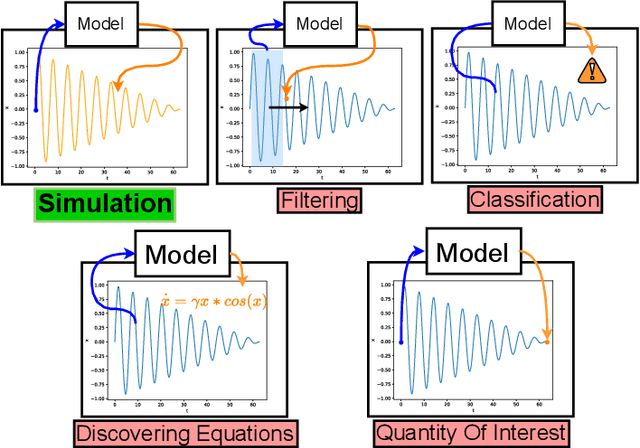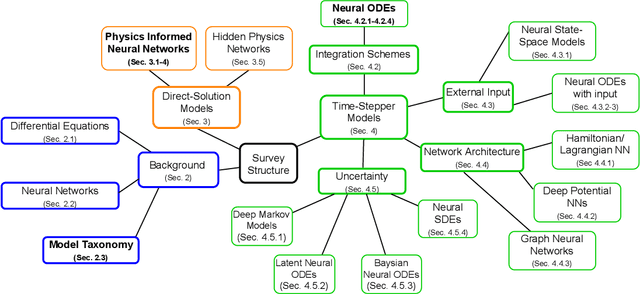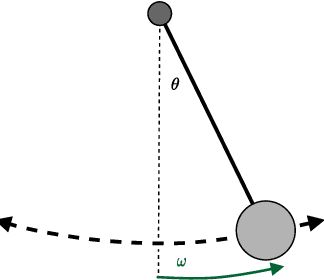Gerald Schweiger
Generalizable Temperature Nowcasting with Physics-Constrained RNNs for Predictive Maintenance of Wind Turbine Components
Apr 05, 2024Abstract:Machine learning plays an important role in the operation of current wind energy production systems. One central application is predictive maintenance to increase efficiency and lower electricity costs by reducing downtimes. Integrating physics-based knowledge in neural networks to enforce their physical plausibilty is a promising method to improve current approaches, but incomplete system information often impedes their application in real world scenarios. We describe a simple and efficient way for physics-constrained deep learning-based predictive maintenance for wind turbine gearbox bearings with partial system knowledge. The approach is based on temperature nowcasting constrained by physics, where unknown system coefficients are treated as learnable neural network parameters. Results show improved generalization performance to unseen environments compared to a baseline neural network, which is especially important in low data scenarios often encountered in real-world applications.
Constructing Neural Network-Based Models for Simulating Dynamical Systems
Nov 02, 2021



Abstract:Dynamical systems see widespread use in natural sciences like physics, biology, chemistry, as well as engineering disciplines such as circuit analysis, computational fluid dynamics, and control. For simple systems, the differential equations governing the dynamics can be derived by applying fundamental physical laws. However, for more complex systems, this approach becomes exceedingly difficult. Data-driven modeling is an alternative paradigm that seeks to learn an approximation of the dynamics of a system using observations of the true system. In recent years, there has been an increased interest in data-driven modeling techniques, in particular neural networks have proven to provide an effective framework for solving a wide range of tasks. This paper provides a survey of the different ways to construct models of dynamical systems using neural networks. In addition to the basic overview, we review the related literature and outline the most significant challenges from numerical simulations that this modeling paradigm must overcome. Based on the reviewed literature and identified challenges, we provide a discussion on promising research areas.
 Add to Chrome
Add to Chrome Add to Firefox
Add to Firefox Add to Edge
Add to Edge